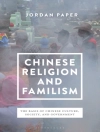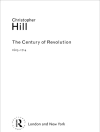In an uprising heard around the world, people in Argentina took to the streets on December 19th & 20th, 2001, shouting “¡Qué se vayan todos!” These words (All of them out!), and the thousands of people banging pots and pans, opened a period of intense social unrest and political creativity that led to the collapse of government after government. Neighborhoods organized themselves into hundreds of popular assemblies across the country, the unemployed workers movement acquired a new visibility, workers took over factories and businesses. Deeply involved in these movements were the activists who made up Colectivo Situaciones.
With the embers of that December’s aftermath still burning, Colectivo Situaciones militantly researched and wrote 19 and 20. Locating themselves among the “horizontally organized subjectivities that insisted on not being represented by politicians but maintaining and developing their own powers of political expression” that Micheal Hardt notes in his introduction, Colectivo Situaciones gathers, interrogates, and offers forth the words of unemployed workers, factory occupiers, insurgent intellectuals, and children of the disappeared. From their investigations is revealed the birth of a new social protagonism and the de-institutional power (potencia) they wield.
19 and 20 has been praised as this generation’s 18th Brumaire and as Marx’s analysis of that struggle helped set the stage for, twenty years later, the Paris Commune we find ourselves here. Revisiting and exploring the forms of counterpower that emerged from the shadow of neoliberal rule we find the book’s potencia has only grown. In the intervening years the analysis of Colectivo Situaciones has been passed from hand to hand and multitudes of citizens from different countries have learned their own ways to chant ¡Qué se vayan todos!, from Iceland to Tunisia, from Spain to Greece, from Tahrir Square to Black Lives Matter. Colectivo Situaciones’ practice of militant research–of engaging with movements’ own thought processes–resonates with everyone seeking to think current events and movements, and through that to gather the foundation of a commune for the 21st century.
Tabela de Conteúdo
Translator’s Preface by Nate Holdren & Sebastian Touza
Preface by Michael Hardt
The Ballad of Buenos Aires by toni negri
Introduction to the 20th Anniversary Edition by Marcello Tarì
Introduction by Colectivo Situaciones
The Great Transformation
From the Market as Utopia to Biopower
The New Social Protagonism: An Ethical Operation
December 19th and 20th, 2001: A New Type of Insurrection
Insurrection Without a Subject
Words and Silences: From Interpretation to the Unrepresentable
Rupture of the Chain of Terror
De-instituent Insurrection
Problems and Challenges
The Positive “No”
Irreversibility
Insurrectional Violence
In the Streets
Situational Thought in Market Conditions
Thought and Consciousness
Knowing and Thinking
Questions of Visibility
Multiplicity and Counterpower in the Piquetero Experience
The Roadblock as Precedent
The Conjuncture and the Options of Thought
Representation
The Inclusion of the Excluded … As Excluded
Piqueteros as a Political Illusion
From Multiplicity to Counterpower
Thinking the Radicality of Struggle
The Case of the MTDs (Unemployed Workers’ Movement)
Identity as Creation
The 19th and 20th
Looting, Social Bond, and the Ethic of the Teacher-Militant
Liberation and Dependency?
Looting
At School
Expression and Representation
Another Logic: Expression
That Obscure Object of Desire
A Paradoxical Situation: the Negation of Representation from Representation
Shortcuts
Neighborhood Assemblies
From 19th and 20th to the Assembly
The Neighborhood as Space of Subjectification
Political Desperation
Being There
Assemblies and Piquetes
Memory and Nation
The Diffuse Network: From Dispersion to Multiplicity
Consensus and Hegemony
The Neoliberal Revolution
Explicit Network and Disconnection (The Barter Club)
The Norm and the Ethic of Self-Affirmed
Marginalization
From Dispersion to Multiplicity
Diffuse Network
Situational Knowledges (The Escraches)
Counterpower
Epilogue
Appendix 1: On the Barter Club
Appendix 2: Causes and Happenstance: Dilemmas of Argentina’s New Social Protagonism
The Surprise (Rupture, De-institution and Visibility)
Phenomenology of an Apparent Reconstruction
The Ballot Boxes and the Streets
Phenomenology of Counterpower
Appendix 3: That December Two Years from the 19th and 20th
Afterword: Disquiet in the Impasse
Impasse: Time Suspended
Governmentality and New Governance
New Governance and Good Government
Latin America: Traversing the Crisis
Mythologiques the Crafts of Politics
Sobre o autor
Antonio Negri (b.1933 in Padua, Italy) is an Italian political philosopher and sociologist.












